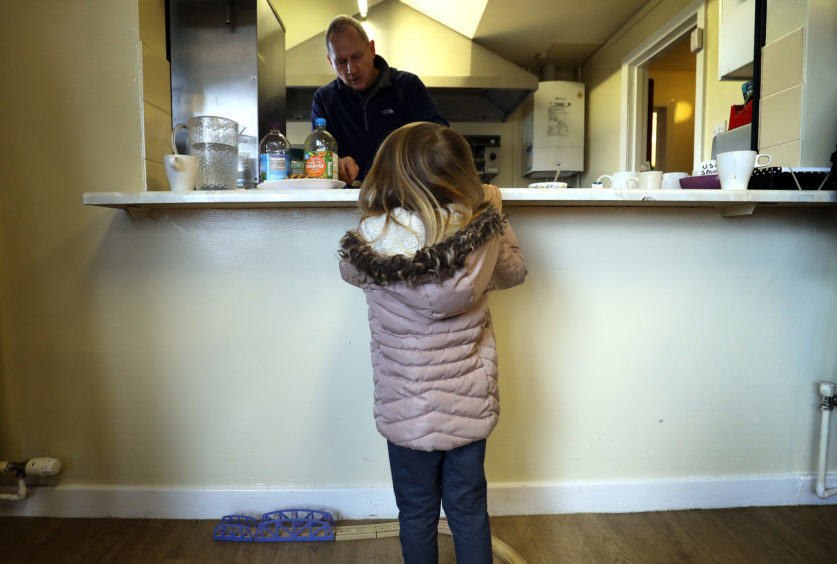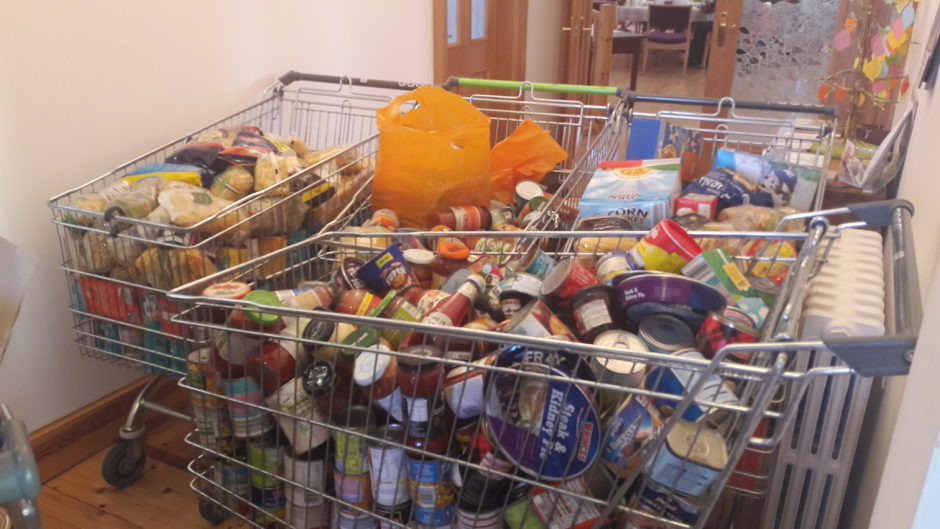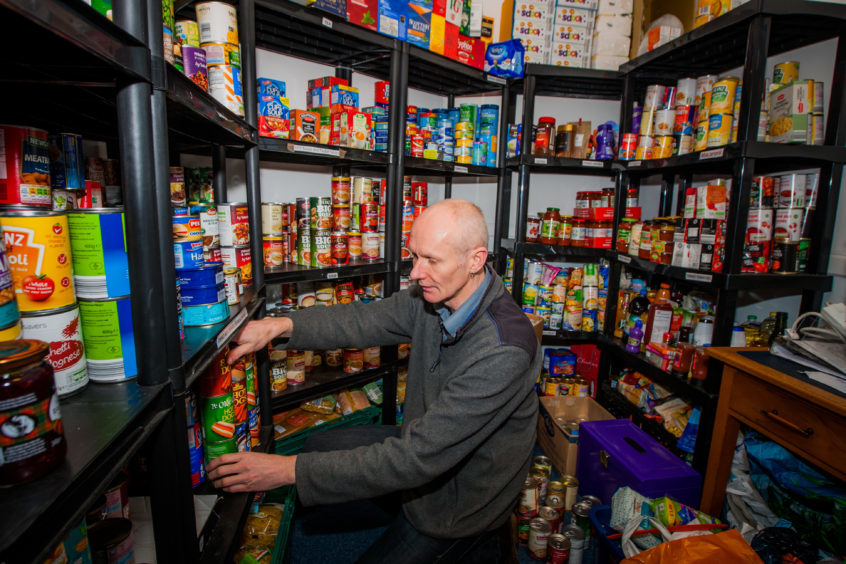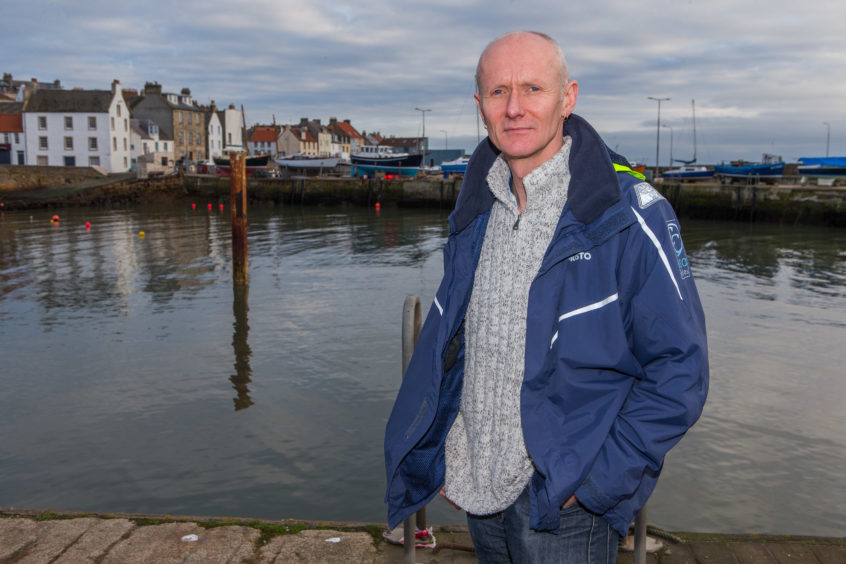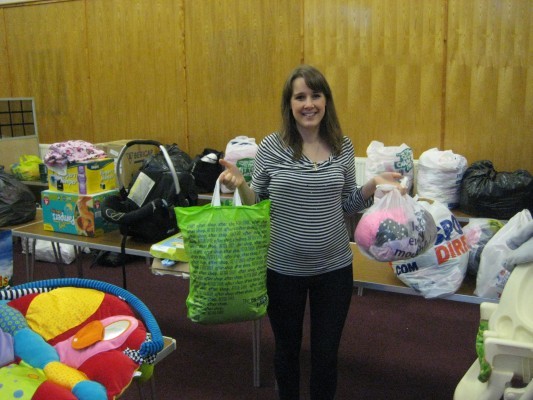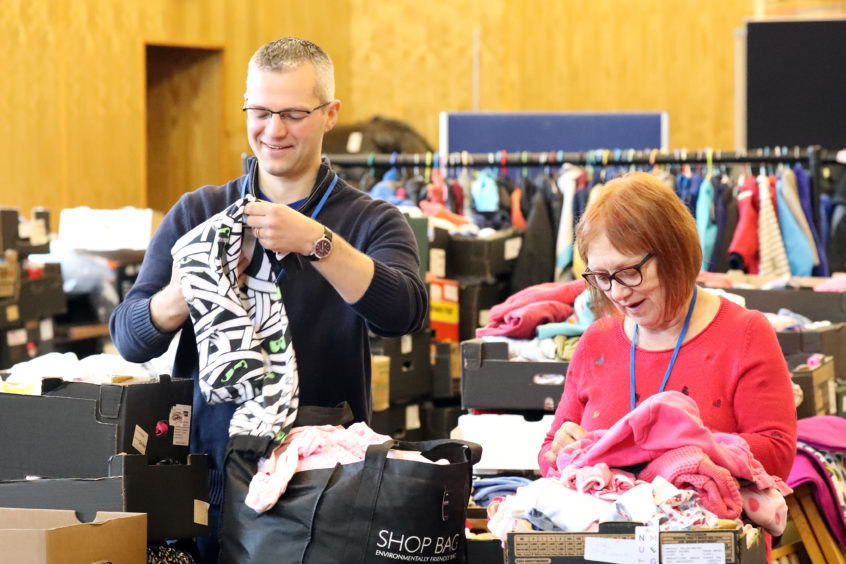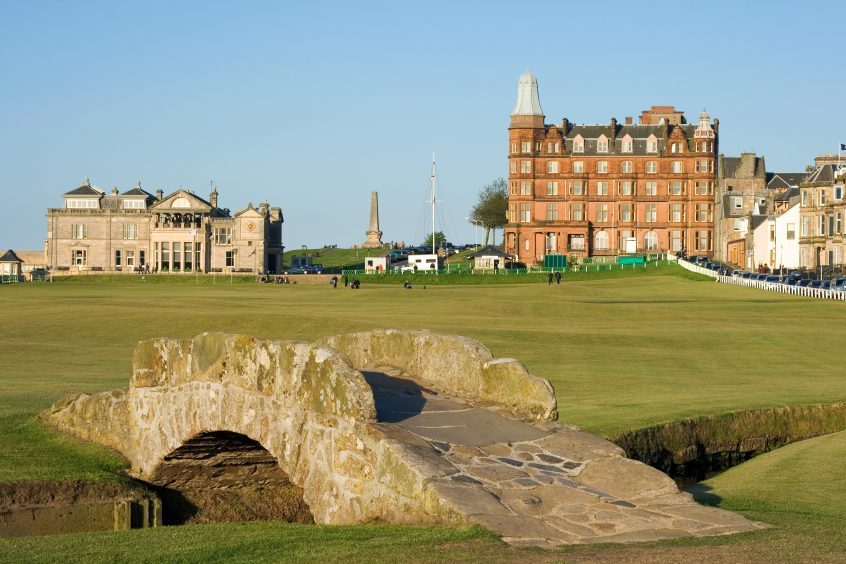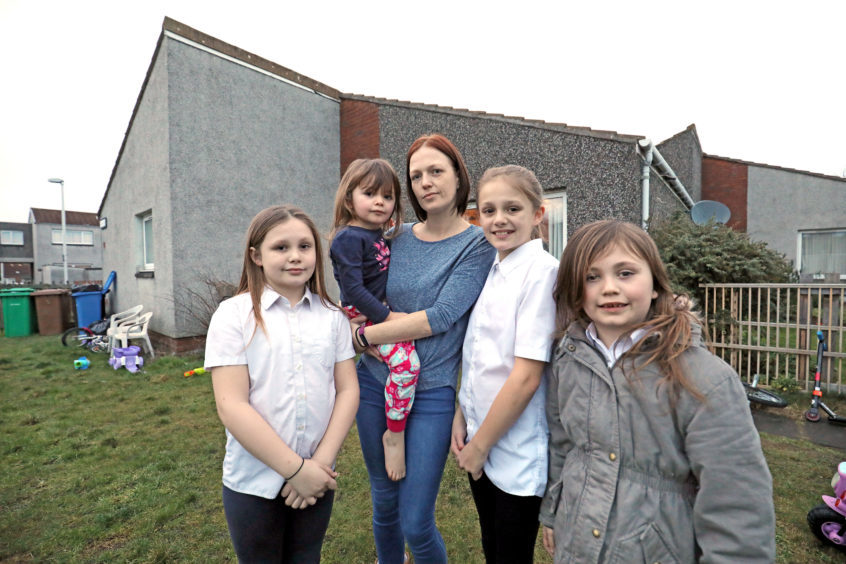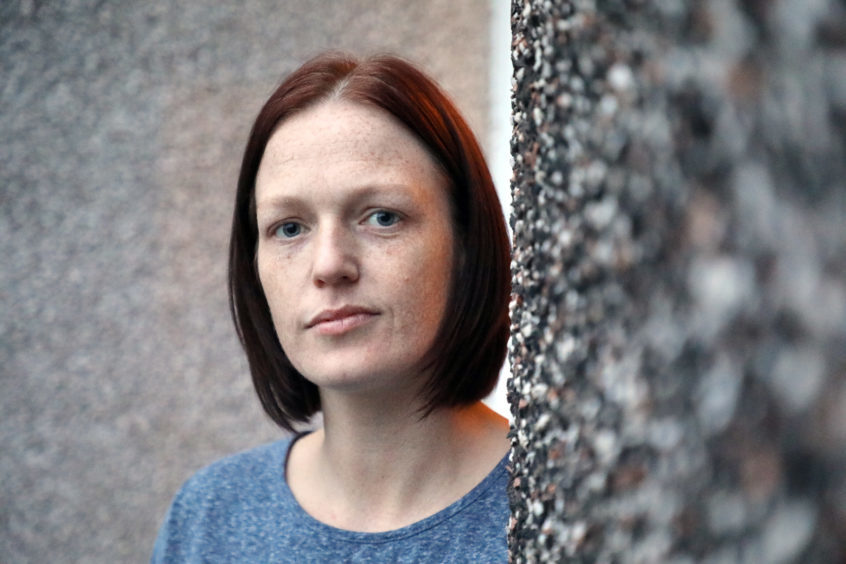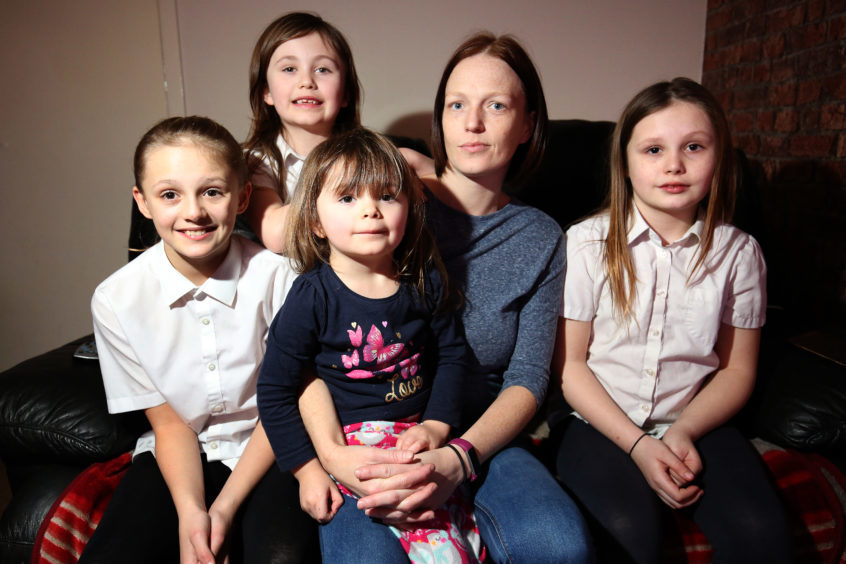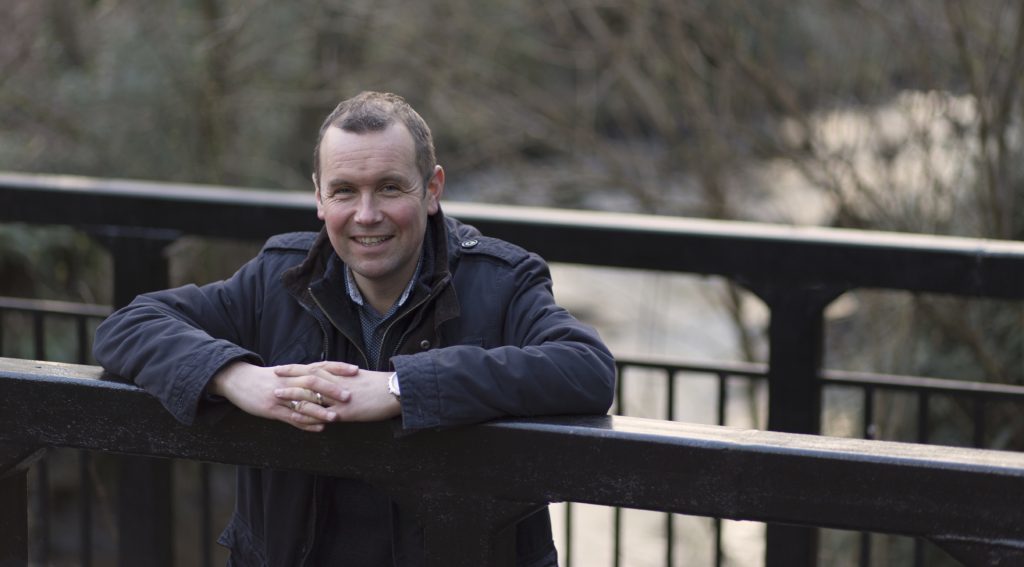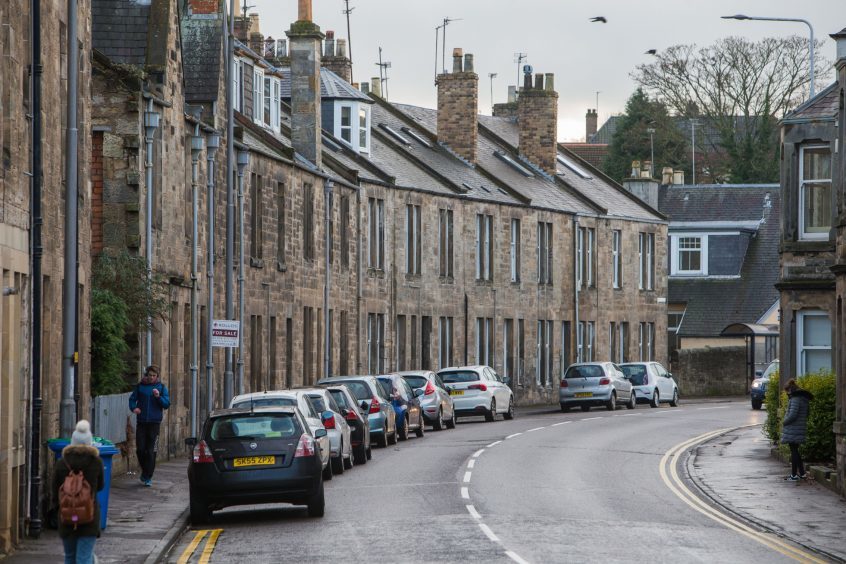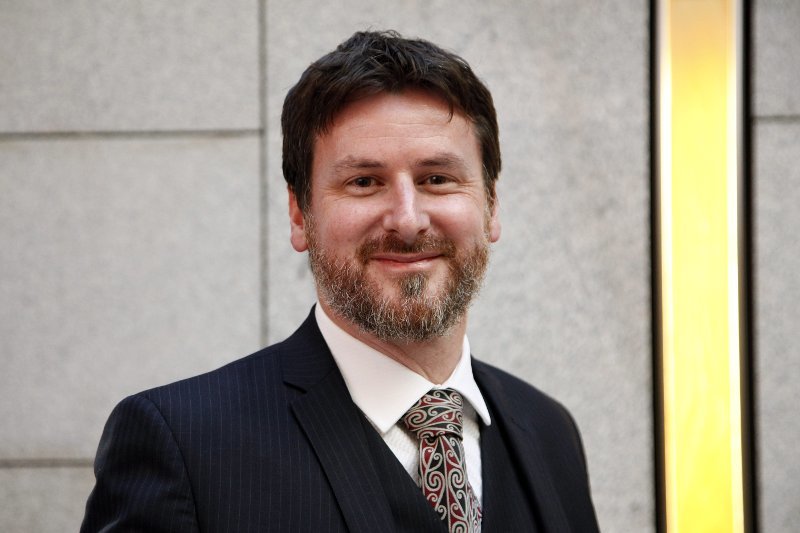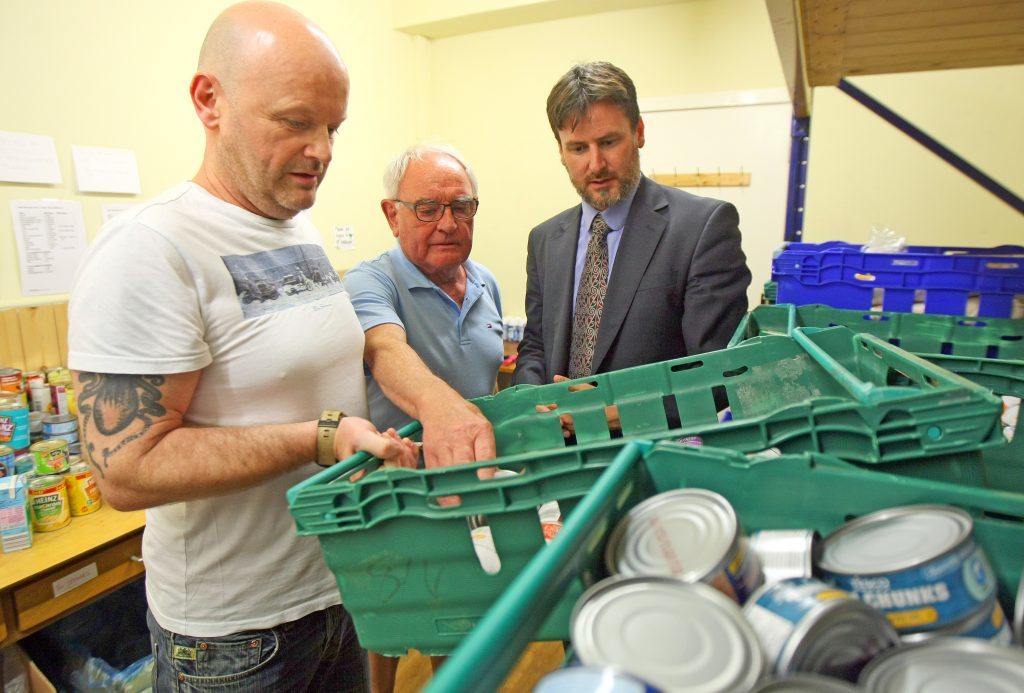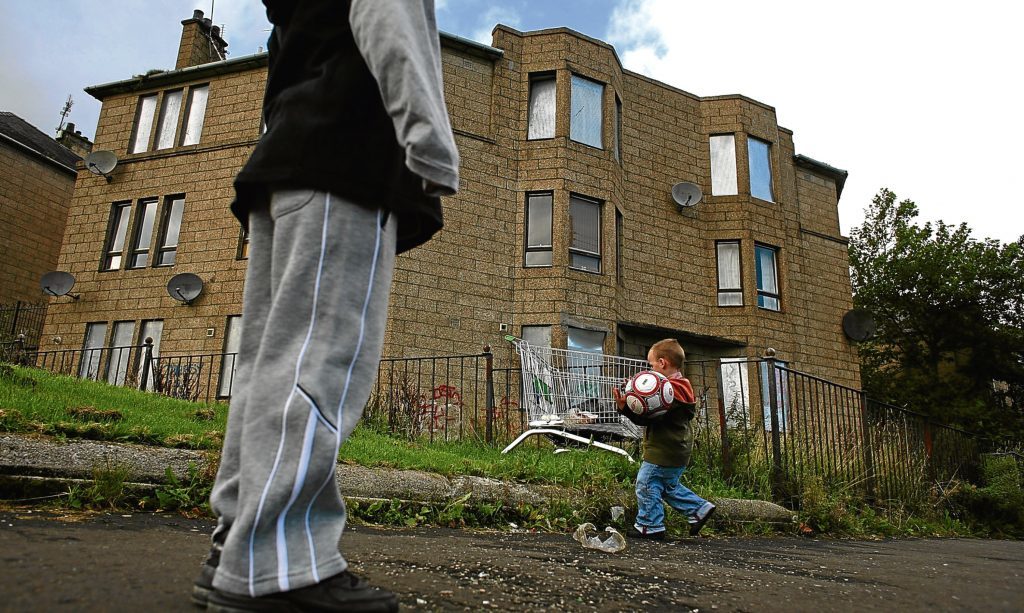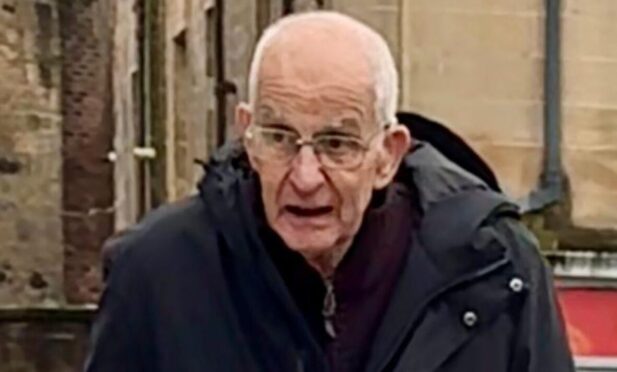In the third and final part of our special report looking at child poverty in Tayside and Fife, Michael Alexander examines the impact of rural poverty which often remains ‘hidden’ from public view.
The doors of Anstruther Parish Church burst open as a group of smiling teenagers from Waid Academy deliver five trolley loads of food items to East Neuk Foodbank which were donated by pupils when they held a non-uniform day the previous week.
It’s a welcome boost to the foodbank which has given out more than 5000 food parcels to local people since it was set up in April 2013 through the church, and continues running independently meaning that users do not need referrals.
But according to foodbank co-ordinator Richard Wemyss, many older people in the East Neuk are in denial that rural poverty exists.
He says some cannot see past the idyllic harbour scenes and do not appreciate that poverty – which often stays hidden through “shame” – exists on their very doorstep.
Richard says more than 50% of his clients are single men and women aged over 45 who have fallen on hard times through a combination of job loss and marital breakdown.
But in an area where there have been stories of homeless people sleeping in cars and empty farm sheds, he believes a lot of child poverty remains hidden and thinks that because it’s such a local area, people are “embarrassed” to come through the door or simply don’t know the foodbank exists.
“Particular problems in a rural area like this are that there are no discount supermarkets,” he said.
“A DayRider bus ticket from Anstruther to St Andrews or Leven is £8.70 return – a huge chunk of money if you are on benefits and want to go to Aldi/Lidl or need to sign on every fortnight.
“Also in these older towns people are living in historic housing with poor insulation, with sash and case windows, with the dearest electricity – so it can be much more expensive to live here.
“When you look at how employment has changed, a lot of the fishing has gone. There are some boats at Pittenweem but there’s no boat builder at St Monans which was a major employer. There are also very few unskilled or semi-skilled jobs.
“With Universal Credit, people are being sanctioned by a system that seems intent on keeping people down, often through no fault of their own.
“People can find themselves struggling very quickly, and yet while many people in the community are very supportive, others shut their curtains, shut their doors and don’t want to know. It’s usually a generational thing.
“I don’t deny there are probably some chancers out there at it. But everyone is being tarred with the same brush.”
Like rural East Perthshire where the Food, Families, Futures (FFF) programme run by charity Children in Scotland has targeted pockets of child poverty with a ‘holiday hunger’ programme, Angus has also been the target of several initiatives.
In Arbroath, where up to 28% of children are in poverty after housing costs, Arbroath town Mission pastor Dave Webster and his wife Morven have helped around 100 families in Angus by providing them with over 330 clothes parcels.
These include families of Syrian refugees who continue receiving support.
“Our project Lighthouse Kids clothes bank was born out of an awareness of a need in some children who attended Sunday school on their own and were not adequately clothed,” said Morven.
“Starting the clothes bank was a natural next step for us as a church to demonstrate God’s love to those in our community in a no strings attached way.
“In our experience, people who are affected by poverty are affected by multiple aspects, struggling to clothe their children, have enough food and heat their homes in a way that often comes together as a package.
“By offering this free service people can receive help when they are struggling without feeling stigmatized.
“I would like to see the government giving fuel vouchers to families/individuals who have a meter system because it’s so expensive to run.
“We had a family come to us as their work circumstances had changed due to health. “They came asking for clothes for their children, but also any blankets as they couldn’t afford to heat their home.
“It would be good to see more help available to families from to government to ensure parents don’t have to choose between food or fuel but have the basics covered so that each childhood is fair and not impeded by poverty.”
St Andrews is one of the most affluent towns in Scotland, with one of its streets recently identified as the most expensive in Scotland – and with its fantastic quality of life, it’s one of the most desirable places to live in the UK.
But existing alongside the hallowed turf of the golf courses and the spires of the university, there exists a considerable amount of hidden poverty in the Auld Grey Toun – and generally more inequality than most people realise.
The situation has been highlighted by Emma Barton and her husband Paul, both 34, who live in a two-bedroomed council bungalow with their four daughters Lexi,3, Lily, 7, Skye, 9 and Naomi, 11.
With the children sharing one room and her husband registered disabled, she says the family are desperately in need of a larger house.
However, Emma, who is head house keeper at the St Andrews Premier Inn, says the lack of council housing, “over-priced” private tenancies, and dependency on a relatively low single wage mean they are trapped in a state of poverty.
“So many people have been coming into St Andrews, buying properties, doing them up and letting them out to students that there’s actually no available pickings for people needing a house who actually live in St Andrews,” she said.
“St Andrews has this image of golf, the university and £3 million houses. But that description sounds like an alien place for many locals.
“It seems to be like it’s all aimed at tourists and students and they totally forget about people who actually live in the town.”
The Barton family have not used a foodbank.
Emma said: “I’ve thought about it but would rather miss meals. I’d rather leave it for someone who is in dire need.”
But the hardest thing, she said, is telling the children that they can’t go on holiday or can’t do extra school activities.
With around 19% of children in rural North East Fife living in poverty, and St Andrews being the largest town in the district, a significant proportion of those children will live in the town, says local Labour councillor Brian Thomson.
He pointed to a study carried out by the Trades Union Congress a few years ago which found that 34% of employees in North East Fife earned less than the living wage, which is the highest percentage in Scotland.
“That’s a shocking figure,” said Mr Thomson, “and whilst it’s good to have a thriving tourist industry in St Andrews, many of the jobs are unfortunately low paid and often seasonal, and more needs to be done in terms of encouraging employers to pay a living wage.”
The former Madras College pupil, who grew up and still lives in the town, said the situation is directly linked to low wages.
He added: “It’s widely recognised that cuts to in-work benefits, such as tax credits, must be a factor in the increase in child poverty.
“In St Andrews, the housing situation exacerbates the problem even more.
“With so few council or registered social landlord housing available, many families are forced to rent in the private sector, often having to pay ridiculously high rents.
“I’m pushing for Fife Council to assist in making housing more affordable by implementing a number of measures – e.g. extending the moratorium on HMOs, preventing new-build homes from becoming second homes, and making St Andrews a rent pressure zone .
“But the overall child poverty problem needs to be tackled by the UK and Scottish governments and, with a number of welfare powers now transferred to the Scottish Parliament, including child benefit, there’s now a real opportunity for Scotland to lead the rest of the UK, by implementing measures that could lift children out of poverty.”
Bruce Adamson, the Scottish Children and Young Person’s Commissioner, has a particular interest in the concept of ‘holiday hunger’ – when children who get free school meals during term time potentially go hungry during the holidays. A number of schemes have been set up across Scotland to address this.
He said: “Poverty is the biggest issue in terms of the human rights of children at the moment and it seems to be particularly acute in certain areas.
“There are statistics in places like Dundee but also issues around rural poverty have come through really clearly in the discussions I’ve had around Scotland.
“The key big thing for me is that in a rich country like Scotland it’s been really quite shocking that poverty is having such a major impact on our children and young people – and it’s a real human rights issue because it links through to your ability to access your other rights.
“If you’ve got a hungry tummy you can’t go on and get a good education.
“You need to be in a safe warm house with good nutritious food, and that enables you to get on and get the education that you need to go on to work or further or higher education.
“But also just to be part of your community, to make friendships, to socialise – all the things that you need to do throughout your childhood. Poverty is having a huge impact.
“As the Scottish Children and Young People’s Commissioner – set up the Scottish Parliament and totally independent of government and local authorities – my job is to promote and safeguard the rights of everyone up to the age of 18, or up to 21 if you’ve been in care or care experienced.
“My job’s mainly about holding to account those that have made promises – the rights that all children have and the promises that those in power have made that they would get a good education, live in a safe and secure house, and they would not experience poverty.
“We’re supposed to be a country that provides a social security net to allow children not to be deprived of their rights because of poverty.
“My job is to be a champion for children to make sure their voices are heard, their experiences are heard when decisions are being made by those in power and that their rights are not being denied. And poverty goes right to the heart of that.
Mr Adamson said the latest child poverty figures proved there were “definitely failures in the system”.
He added: “The promises that every young person in Scotland should have an adequate standard of living and some of them don’t at the moment.
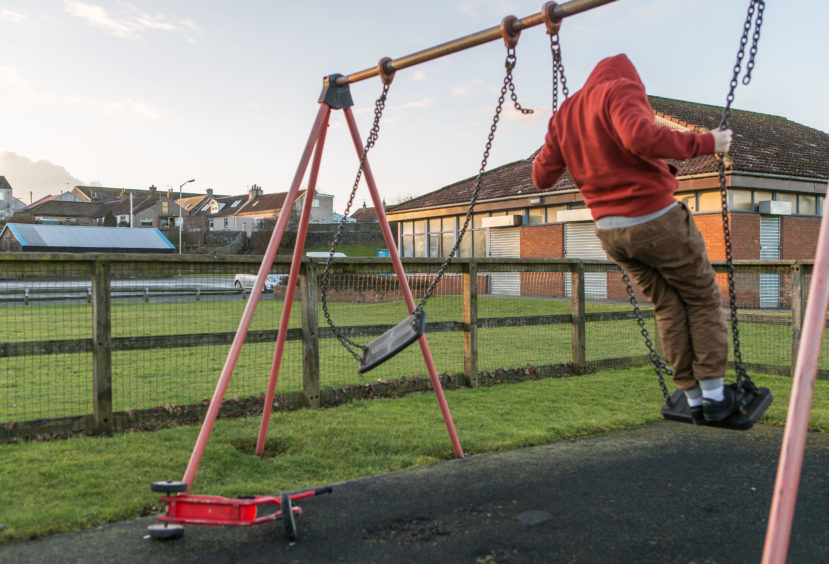
“We need to look more at how our social security system works and how local authorities can give extra support, what schools can do to alleviate holiday hunger. “People should not be experiencing the kind of poverty.
“The really exciting thing is that when you work directly with children and young people is that they do have excitement and ideas and aspirations. When you are talking about what is possible they are full of energy and ideas.
“One of the key things is about getting children and young people working directly with people that are in power.
“Because when people in power actually meet children and young people and talk about their ideas, that’s when you get the change in decision making.”
